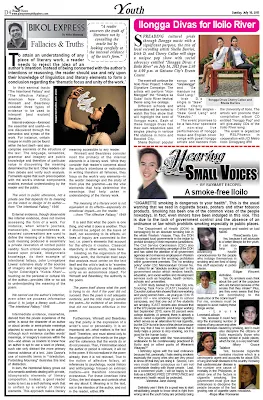If there’s one thing worth noting about Mahatma Gandhi, an Indian lawyer leader who lived through the years of British Empire, it would be his advocacy of world peace, evident in his influence to the world after tirelessly seeking to unify Moslems and Hindus in his homeland.
His nonviolent initiative to achieve peace between and among his fellow Indians took the world by storm and has been immortalized in the hearts of many peace-loving people, including political leaders worldwide.
Even when he was young, Mahatma Gandhi already naturally had an instinct to work to dismantle differences between people by taking efforts to liberate the oppressed from their oppressors. Inspired by his personal experience of discrimination by the British in South Africa, he rallied for equality between and among Indians and the white race. The initiatives he took created a large following in and outside the British colony.
Going back to his homeland India, Gandhi, now popular for his South African rights initiative, continued to work as a lawyer and journalist and vowed to address inequality prevalent in their country through nonviolent means.
Such privilege to be looked up to by the rest of the world as a role model virtually gave Gandhi the opportunity to cultivate his personal vision for peace, which is best seen through his conscious pursuit of dharma, the highest good in Indian belief—and his own desire to constantly set an example of sacrifice for the sake of others.
Through his own intermittent jail terms which he served for the cause he found worth fighting for, Mahatma Gandhi showed his followers and admirers how to consciously pursue the good—both in words and in action—by this time he had now become a person of great fame and influence, a personal icon for anyone on what is right and wrong.
Articulate as a lawyer and diplomatic in his relations with the affairs of the state, Gandhi constantly protested against hostilities and conflicts arising from racial and cultural differences and religious fanaticism. Fasting to stage protest against riots, Gandhi showed that peace can be achieved through inner peace.
In so doing, Gandhi’s vision for the world to become a more livable place had not gone unnoticed. World leaders began to recognize the importance of such an unassuming, merciful—similarly Christian—attitude in the conduct of human affairs.
By now, the British Empire, after not being able to find any way out to [stay in control of] India—ironically barraged by Gandhi’s quiet means of protest lasting through a number of years—finally granted independence to India.
Not long after, the Indian independence further gave way to more spaces where oppressed groups of people can voice out personal and national freedom—and this included the movement of the Moslem-dominated part of India to be later called Pakistan, which seceded from the Indian sovereignty, later creating more tensions between the two races.
While incessant conflicts between Hindus and Moslems still persist today, mahatma Gandhi’s consistent and sincere pursuit of the peace through nonviolent means in order to solve the issue of differences have simply been enormous to inspire people all over the world to similarly work for peace.
Solely, his life inspired other world leaders to properly address conflicts, discrimination, and social unrest between and among social and religious classes, paving the way for a more tolerant community living in harmony despite diversity.








